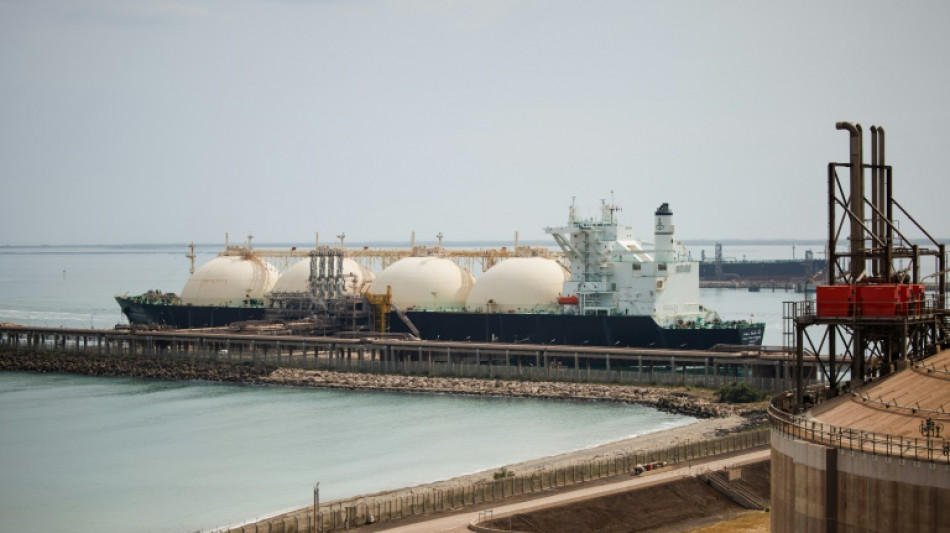
-
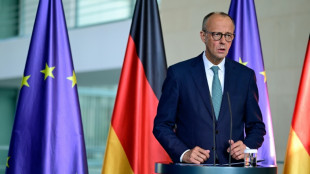 Germany suspends arms exports to Israel for use in Gaza
Germany suspends arms exports to Israel for use in Gaza
-
Stocks waver, gold futures hit record on US tariff updates
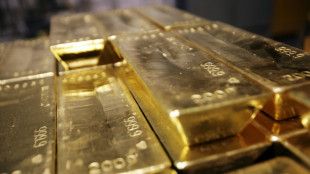
-
 Guessand says he jumped at chance to join Aston Villa after sealing move
Guessand says he jumped at chance to join Aston Villa after sealing move
-
Israel to 'take control' of Gaza City, sparking wave of criticism
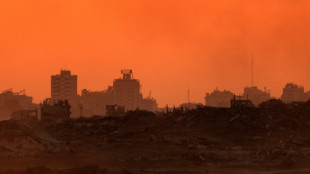
-
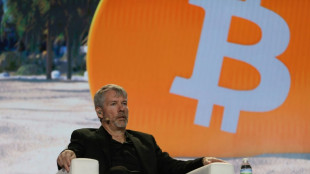 Accumulating bitcoin a risky digital rush by companies?
Accumulating bitcoin a risky digital rush by companies?
-
Liverpool's Slot hints at fresh Isak bid despite 'attacking power'

-
 PSG to sign Lille goalkeeper Lucas Chevalier: source
PSG to sign Lille goalkeeper Lucas Chevalier: source
-
Oil industry presence surges at UN plastic talks: NGOs

-
 Kipyegon says a woman will run a sub-four minute mile
Kipyegon says a woman will run a sub-four minute mile
-
Tokyo soars on trade deal relief as most Asian markets limp into weekend
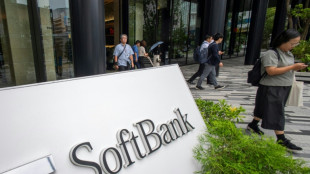
-
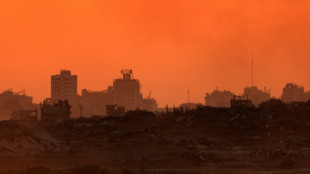 Israel to 'take control' of Gaza City after approving new war plan
Israel to 'take control' of Gaza City after approving new war plan
-
Australian A-League side Western United stripped of licence

-
 'Back home': family who fled front buried after Kyiv strike
'Back home': family who fled front buried after Kyiv strike
-
Indonesia cracks down on pirate protest flag

-
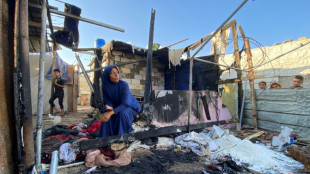 Israeli army will 'take control' of Gaza City: PM's office
Israeli army will 'take control' of Gaza City: PM's office
-
Australian mushroom murderer accused of poisoning husband

-
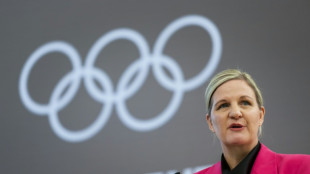 Coventry's mettle tested by Russian Olympic debate, say former IOC figures
Coventry's mettle tested by Russian Olympic debate, say former IOC figures
-
Library user borrows rare Chinese artwork, returns fakes: US officials
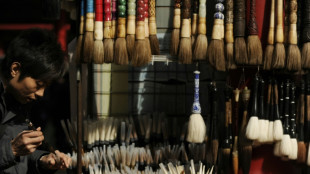
-
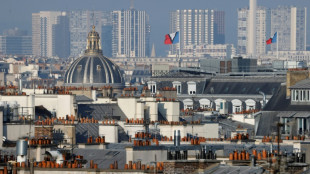 Parisians hot under the collar over A/C in apartments
Parisians hot under the collar over A/C in apartments
-
Crypto group reportedly says it planned sex toy tosses at WNBA games

-
 American Shelton tops Khachanov to win first ATP Masters title in Toronto
American Shelton tops Khachanov to win first ATP Masters title in Toronto
-
Tokyo soars on trade deal relief as Asian markets limp into weekend
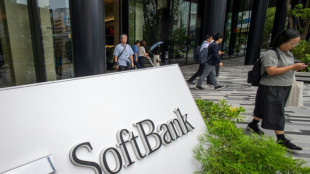
-
 New species teem in Cambodia's threatened karst
New species teem in Cambodia's threatened karst
-
Australian mushroom murderer accused of poisoning husband: police

-
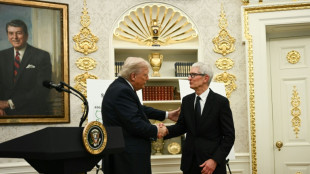 Solid gold, royal missives and Nobel noms: how to win Trump over
Solid gold, royal missives and Nobel noms: how to win Trump over
-
Canadian teen Mboko outlasts Osaka to win WTA Montreal crown
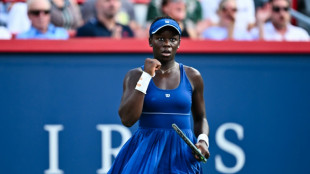
-
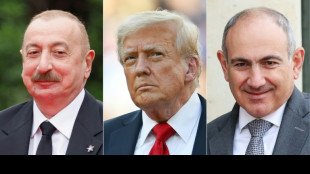 Trump to host Armenia, Azerbaijan for historic 'Peace Signing'
Trump to host Armenia, Azerbaijan for historic 'Peace Signing'
-
Israeli airline's Paris offices daubed with red paint, slogans

-
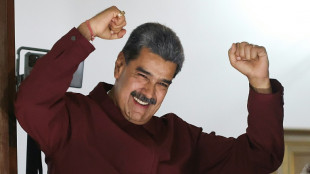 US raises bounty on Venezuela's Maduro to $50 mn
US raises bounty on Venezuela's Maduro to $50 mn
-
Lebanon cabinet meets again on Hezbollah disarmament

-
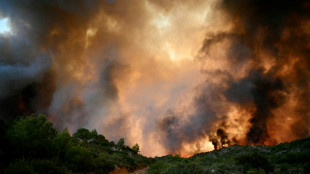 France's huge wildfire will burn for days: authorities
France's huge wildfire will burn for days: authorities
-
Bolivia right-wing presidential hopeful vows 'radical change'
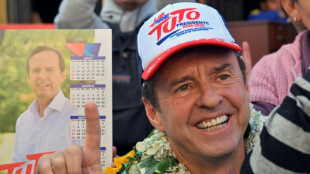
-
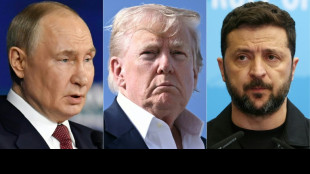 Trump says would meet Putin without Zelensky sit-down
Trump says would meet Putin without Zelensky sit-down
-
Trump offers data to justify firing of labor stats chief
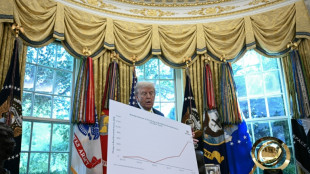
-
 Bhatia leads by one at PGA St. Jude, Scheffler five adrift
Bhatia leads by one at PGA St. Jude, Scheffler five adrift
-
Disney settles Trump-supporting 'Star Wars' actor lawsuit

-
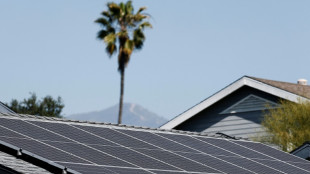 Trump moves to kill $7 billion in solar panel grants
Trump moves to kill $7 billion in solar panel grants
-
Venus Williams falls at first hurdle in Cincinnati

-
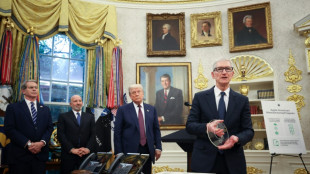 Mixed day for global stocks as latest Trump levies take effect
Mixed day for global stocks as latest Trump levies take effect
-
SpaceX agrees to take Italian experiments to Mars
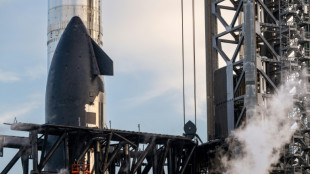
-
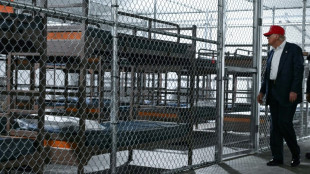 US judge orders temporary halt to new 'Alligator Alcatraz' construction
US judge orders temporary halt to new 'Alligator Alcatraz' construction
-
US uses war rhetoric, Superman to recruit for migrant crackdown
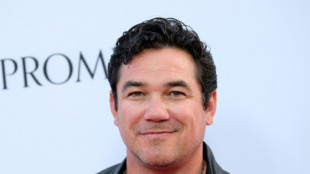
-
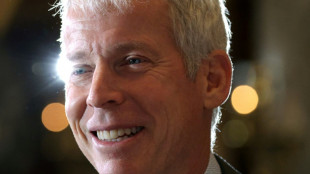 US to rewrite its past national climate reports
US to rewrite its past national climate reports
-
U can't pay this: MC Hammer sued over delinquent car loan

-
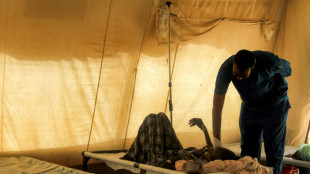 WHO says nearly 100,000 struck with cholera in Sudan
WHO says nearly 100,000 struck with cholera in Sudan
-
Huge wildfire in southern France now under control
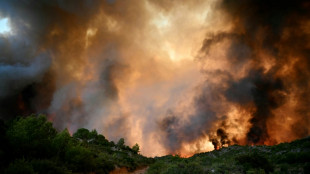
-
 Kane scores as Bayern thump Spurs in pre-season friendly
Kane scores as Bayern thump Spurs in pre-season friendly
-
France strikes down return of banned bee-killing pesticide
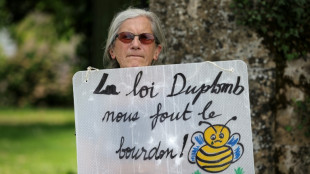
-
 Canada sends troops to eastern province as fire damage grows
Canada sends troops to eastern province as fire damage grows
-
OpenAI releases ChatGPT-5 as AI race accelerates

| RBGPF | -5.79% | 71.84 | $ | |
| JRI | 0.52% | 13.41 | $ | |
| SCS | 0.06% | 16 | $ | |
| NGG | -0.31% | 72.08 | $ | |
| BCC | 0.32% | 83.19 | $ | |
| CMSD | -0.09% | 23.52 | $ | |
| BCE | 2.23% | 23.78 | $ | |
| CMSC | 0.04% | 22.96 | $ | |
| SCU | 0% | 12.72 | $ | |
| RIO | 1.12% | 60.77 | $ | |
| GSK | 2.21% | 37.58 | $ | |
| RELX | 1.03% | 49.32 | $ | |
| AZN | 1.3% | 74.57 | $ | |
| VOD | -0.36% | 11.26 | $ | |
| RYCEF | -0.42% | 14.44 | $ | |
| BTI | 0.51% | 56.69 | $ | |
| BP | 0.91% | 34.19 | $ |

EU proposes ending all Russian gas imports by 2027
The EU on Tuesday unveiled a long-promised plan to phase out its remaining gas imports from Russia by the end of 2027, a challenge given Europe's continued dependence on Russian fossil fuels.
"Today the European Union sends a very clear message to Russia: no more, no more, will we permit Russia to weaponise energy against us," EU energy chief Dan Jorgensen said as he set out the measures.
The European Commission's two-step plan would put an end to new contracts and existing short-term spot contracts with Russian suppliers by the end of 2025. All remaining imports would be banned by the end of 2027.
"No more will we allow our member states to be blackmailed. No more will we indirectly help fill up the war chest in the Kremlin," Jorgensen told a news conference.
The EU enacted a ban on Russian oil in late 2022 in response to Moscow's invasion of Ukraine, and has since sought to wean itself off Russian gas supplies.
Although imports via pipeline have fallen sharply, several European countries have increased their purchases of Russian liquefied natural gas (LNG), transported by sea, and the bloc now wants to turn the tap off completely.
Russia still supplies 17.5 percent of the bloc's gas, based on EU data, and as much as 19 percent according to the Institute for Energy Economics and Financial Analysis (IEEFA).
To do without Russian energy, "the guiding principle is diversification", European Commission chief spokeswoman Paula Pinho said last week.
Phasing out Russian supplies would pave the way for Europe to buy more LNG from the United States -- something both Brussels and Donald Trump have floated as a way to resolve the standoff sparked after the US president targeted European exports with tariffs.
EU trade chief Maros Sefcovic told the Financial Times that the dispute with Washington could be resolved "very quickly" through LNG and soybean purchases -- as a way to reduce the 27-country bloc's trade surplus with its US partner.
The United States is already the bloc's largest LNG supplier, making up 45.3 percent of the market.
- 'Much more to do' -
EU officials acknowledge that phasing out Russian energy is easier said than done, as some member states are more dependent on Moscow's LNG than others, while others like Hungary have friendly ties with the Kremlin.
France for example would face a heavier impact from any move away from Russian LNG since it has five terminals for its delivery in Europe.
France increased its Russian LNG imports by 81 percent between 2023 and 2024, giving Russia 2.68 billion euros ($3 billion) in income, according to the Institute for Energy Economics and Financial Analysis.
The commission's plan -- which still needs approval from member states -- was delayed as Brussels waited to see whether talks between Russia and the United States yielded a deal to end the Ukraine war.
The EU executive has highlighted its efforts to reduce dependence on Russian fossil fuels since the 2022 invasion.
Over a few years, "we went from 45 percent of our gas imports coming from Russia, down to 18 percent. We went from one-in-five barrels of oil down to one-in-fifty, a tenfold reduction," EU chief Ursula von der Leyen said last month.
But, she admitted, "we all know that there is so much more to do".
S.AbuJamous--SF-PST
